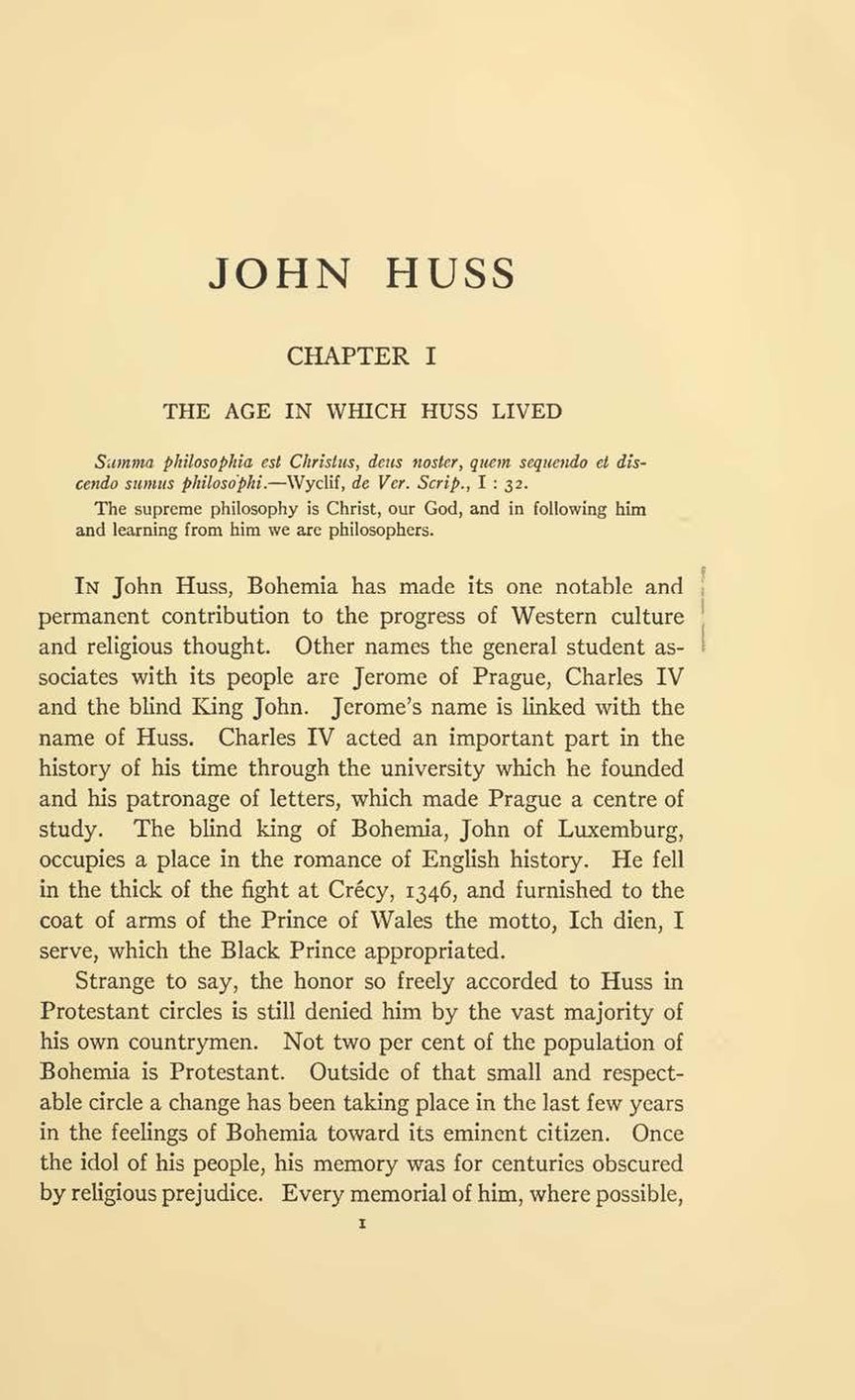JOHN HUSS
CHAPTER I
THE AGE IN WHICH HUSS LIVED
Summa philosophia est Christus, deus noster, quem sequendo et discendo sumus plilosophi.—Wyclif, de Ver. Scrip., I: 32.
The supreme philosophy is Christ, our God, and in following him and learning from him we are philosophers.
In John Huss, Bohemia has made its one notable and permanent contribution to the progress of Western culture and religious thought. Other names the general student associates with its people are Jerome of Prague, Charles IV and the blind King John. Jerome’s name is linked with the name of Huss. Charles IV acted an important part in the history of his time through the university which he founded and his patronage of letters, which made Prague a centre of study. The blind king of Bohemia, John of Luxemburg, occupies a place in the romance of English history. He fell in the thick of the fight at Crécy, 1346, and furnished to the coat of arms of the Prince of Wales the motto, Ich dien, I serve, which the Black Prince appropriated.
Strange to say, the honor so freely accorded to Huss in Protestant circles is still denied him by the vast majority of his own countrymen. Not two per cent of the population of Bohemia is Protestant. Outside of that small and respectable circle a change has been taking place in the last few years in the feelings of Bohemia toward its eminent citizen. Once the idol of his people, his memory was for centuries obscured by religious prejudice. Every memorial of him, where possible,
1
